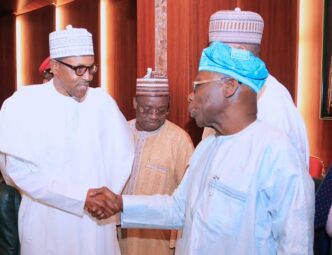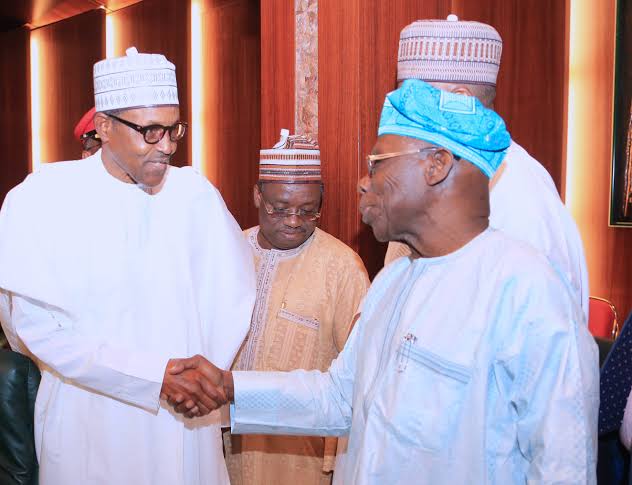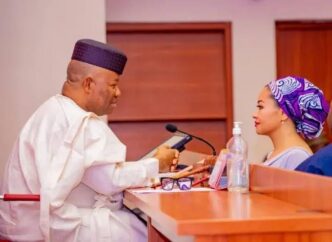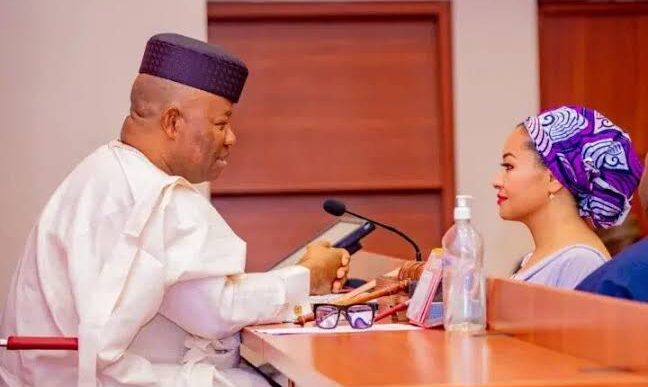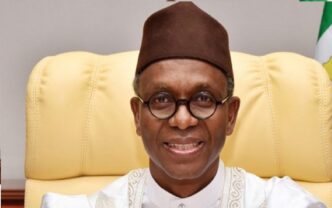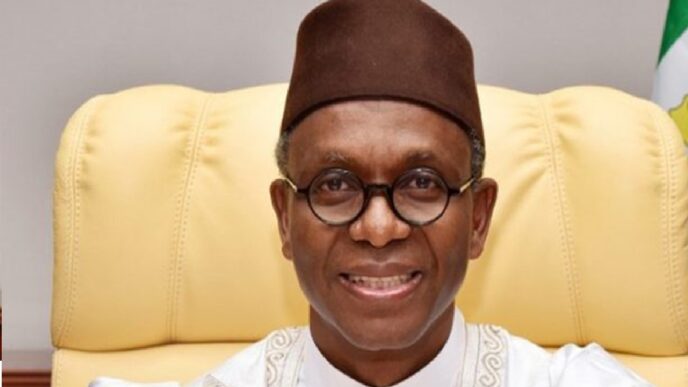Former President Olusegun Obasanjo has made significant allegations against his predecessor, Muhammadu Buhari, regarding the issue of corruption, particularly connected to state pardons issued to two convicted former governors in 2022.
Gatekeepers News reports that his recently published book titled ‘Nigeria: Past and Future,’ Obasanjo asserts that the Buhari administration was marked by “the most atrocious waste” of resources and claims that “corruption was at its peak” during this period.
The unveiling of the book took place during Obasanjo’s 88th birthday celebration. In addition to his criticisms of Buhari, Obasanjo also directed harsh comments towards Abubakar Malami, the former attorney-general of the federation, labeling him a “devil’s workshop.”
“The most atrocious waste, the entrenchment of corruption, and the suppression of officials fighting it occurred under President Buhari’s watch and his attorney general, Abubakar Malami, whom he turned into a devil’s workshop,” PUNCH quoted Obasanjo as alleging.
In 2022, Buhari granted pardon to Joshua Dariye, former governor of Plateau state, and Jolly Nyame, former governor of Taraba state.
Nyame was serving a 12-year jail sentence for diverting N1.64 billion during his tenure, while Dariye was jailed for 10 years over N1.126 billion fraud.
The former governors were among 159 inmates pardoned at a council of state on the grounds of age and ill health.
Obasanjo alleged that Malami “strongly” advised Buhari to grant the pardons, claiming the process was corrupt and that Dariye and Nyame “were not actually terminally ill, as initially claimed”.
“It was all part of Malami’s financial shenanigans, and he played many such schemes to his advantage,” Obasanjo said.
“His principal concurred, condoned, turned a blind eye and a deaf ear, and paid lip service to fighting corruption while cohabiting comfortably with corruption in multifarious ways.”
Meanwhile, at the time the state pardon was granted, it had generated controversy, with critics saying it would undermine the country’s fight against corruption.
But Buhari’s government defended the decision, insisting it was made in the interest of fairness.

